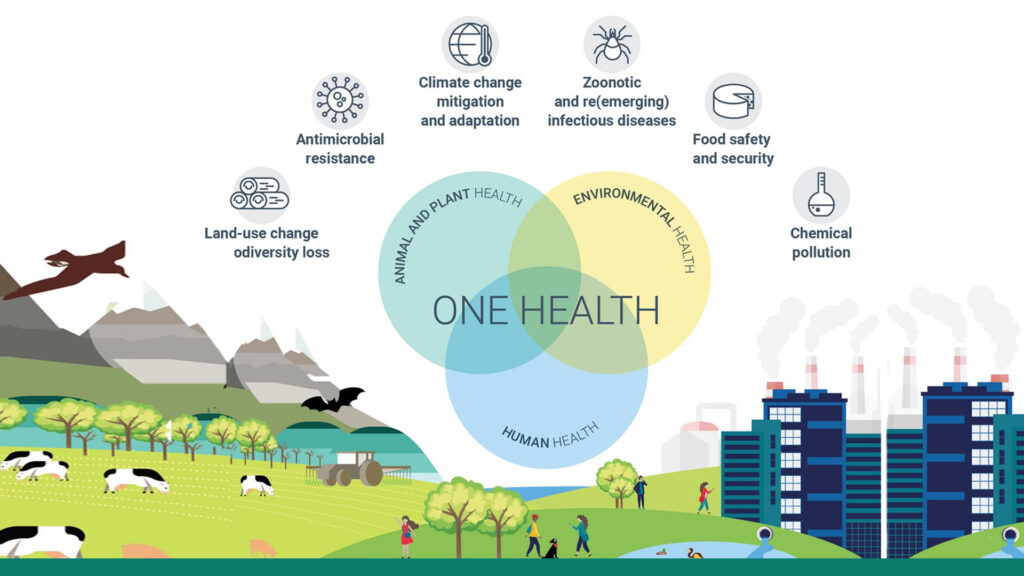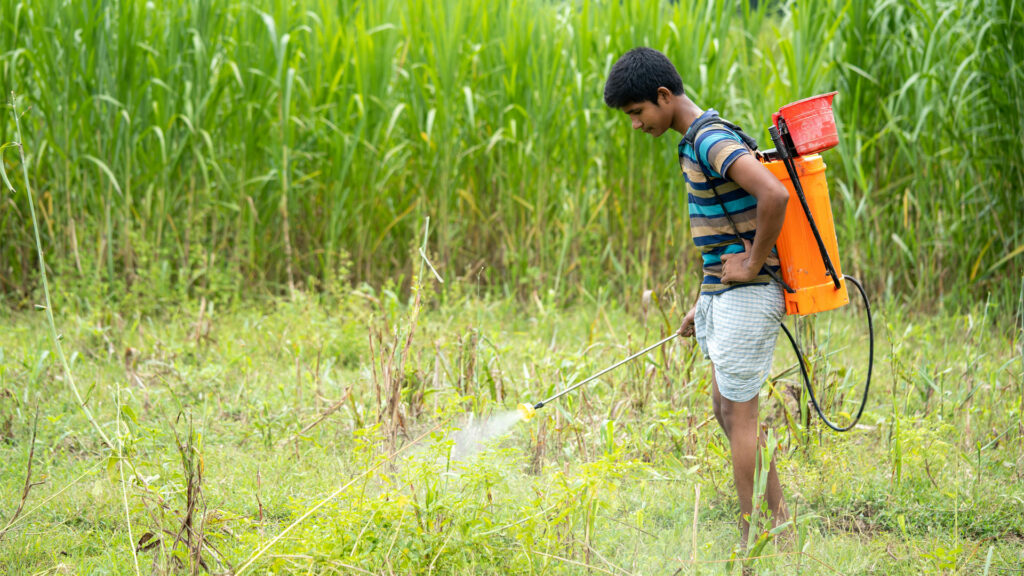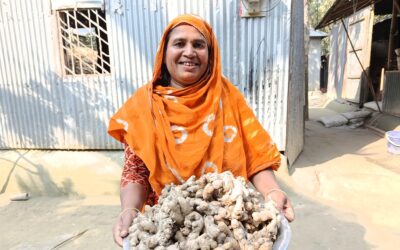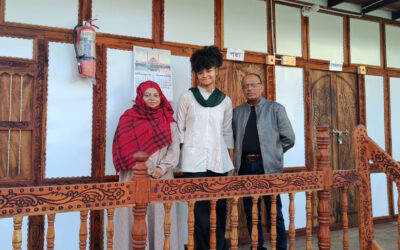
by Isabelle Koch,
December 11, 2024
The One Health approach is critical for addressing Bangladesh’s growing health and climate challenges. Friendship’s work aligns with One Health through community-based healthcare, climate adaptation projects, and sustainable agricultural practices, building resilience in health among vulnerable populations.
One Health is a holistic view of health that recently gained traction, especially since the COVID-19 pandemic. It magnified the awareness on potential for zoonotic disease outbreaks to cause global disruptions on an unprecedented scale, as the One Health concept recognises the interdependence of human health, animal health, and the state (or ‘wellbeing) of our shared environment. Thus, diseases affecting one element can easily spillover to the other elements. In densely populated countries such as Bangladesh, where humans and animals often live in close proximity to each other, this interconnectedness is hard to ignore. Climate change plays a role in disrupting One Health by weakening this interconnectedness, increasing the risk of acquiring zoonotic diseases, and affecting biodiversity, water, and food security.
Climate Change Blocks the Path to One Health
As temperatures rise, ecosystems shift, changing how diseases spread. Disease-carrying vectors like mosquitoes are appearing in newer areas. Extreme weather events are occurring more frequently, and the loss of biodiversity is accelerating. These factors provoke complex global health challenges, from food insecurity to increased risk of zoonotic disease outbreaks. Deforestation and unsustainable agricultural practices are further straining the situation, allowing pathogens to thrive easier and cross on to other hosts. In areas such as the char islands, where majority depend heavily on agriculture and livestock, extreme climate conditions can put humans and animals in danger of severe health issues.
Antimicrobial resistance, worsened by climate change, spreads with warmer temperatures and increased antibiotic use, threatening human and animal health. The One Health approach addresses this by promoting collaboration, disease surveillance, and resilience through education on disease control, sustainable farming, and hygiene. Adopting a One Health approach is crucial for Bangladesh, given its vulnerability to climate change, extreme weather, and reliance on agriculture and livestock. Integrating this approach can build resilience, protect communities, and safeguard ecosystems for a healthier, more sustainable future.

State of One Health in Bangladesh Now
Bangladesh has made considerable efforts to implement One Health initiatives on the national level since 2007 with the establishment of policy bodies working at ministerial level, the integration of One Health in academia, and the founding of civil society/think tanks connecting professionals from the health, veterinary, and environmental sectors, now 1500 members strong.
In terms of Bangladesh, it is clear that much of the focus has been on fostering collaboration between sectors at the national level. This creates a critical gap in community-level implementation, where the impacts of the One Health approach can be directly observed. In fact, zoonotic disease interventions have been found to be more effective if they involve a high level of community engagement. Local engagement fosters awareness and behaviour change. By developing community capacity on topics such as animal husbandry, sustainable agricultural practices, adequate hygiene practices, and appropriate antimicrobial use, health risks can be mostly mitigated at the source.
Furthermore, greater efforts are needed to integrate One Health initiatives into current health strategies. For example, Bangladesh’s new pandemic preparedness plan neglects human health’s interconnectedness with the animal and environmental sectors. Incorporating multisectoral collaboration in this project would facilitate a preventive approach to managing outbreaks with epidemic potential, rather than relying on reactive measures.
Friendship’s Alignment with One Health
Much of Friendship’s projects align closely with One Health principles. The organisation’s healthcare initiatives, which started with hospital ships serving the char regions, exemplify One Health’s principle of improving human health in climate affected settings. Since then, these services have expanded to include satellite clinics and a land hospital, ensuring healthcare access to the most remote communities, while also focusing on community capacity building through health educational campaigns on topics such as hygiene practices and nutrition. These initiatives address immediate medical needs and create long-term health resilience in regions disproportionately affected by environmental and socioeconomic challenges.
Friendship also runs various climate adaptation projects. For e.g., the Sundarbans mangrove afforestation project protects soil from salinity and reduces erosion in the coastal South, and promotes sustainable and climate-adaptive agroecological practices. These efforts have even created livelihoods and stood as natural defenses against cyclones and tidal surges. Friendship also focuses on water resource management, ensuring access to clean drinking water in remote and disaster-prone areas. By addressing these interconnected challenges, Friendship promotes and implements holistic solutions aligned with One Health. Friendship also supports animal health by training para-veterinarians and promoting sustainable farming and livestock care. These efforts help communities protect livestock, ensure safer food production, and reduce antibiotic dependency.

Way Forward
Despite these achievements, most of Friendship’s projects currently operate independently, much like the broader national One Health initiatives. To bridge this gap, Friendship is currently planning a comprehensive community-based One Health project. This project aims to integrate components from existing projects and new elements into one holistic framework addressing interconnected challenges faced by Bangladesh’s most vulnerable communities, thus building on the foundation Friendship has already laid across the human and animal health, and environmental sectors. This community-driven project will be the first of its kind in Bangladesh and will hopefully serve as a benchmark for future integrated One Health initiatives in the country and beyond.



